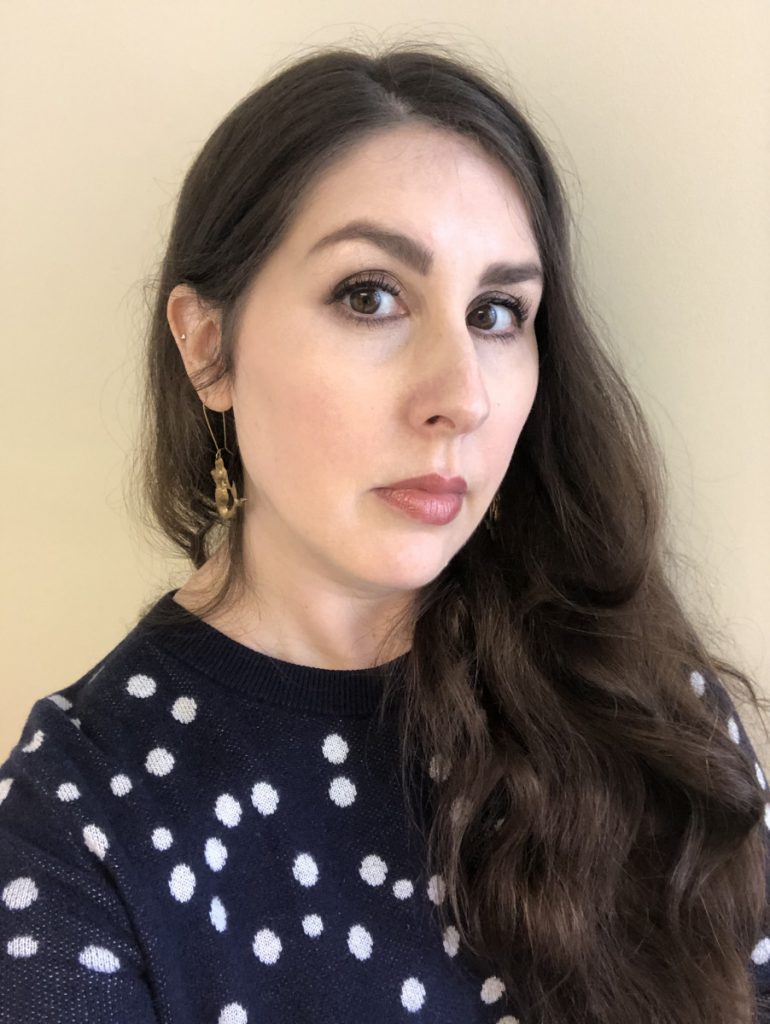
I asked my sixth-grade Catechism teacher—and then I got in trouble.
Emma Bolden, author of “Confiteor” (NER 41.2).
When did Jesus know He was Jesus? Was he born knowing, or did He learn later? And if He was born knowing, does that mean He wasn’t a normal human baby?” I asked my sixth-grade Catechism teacher—and then I got in trouble. Some questions, she told me, should be silent, released as soon as they’re thought like doves winging up to God. I thought the questions and I kept them silent, but I couldn’t dove them, couldn’t give them the wings they needed to escape.
What does it mean, to be holy? To unite with divinity? In Catechism we learned that on Pentecost, God turned Himself into tongues of flame He used to speak to the disciples. I waited for my own ears to burn. I followed all of the rules I was taught. I capitalized “He” every time the antecedent was “God.” I fasted on holy days and Lenten Fridays. I read how the saints shivered and sacrificed. Every mass, I prayed the Confiteor. I confessed to almighty God that I had sinned by my fault, by my fault, by my most grievous fault. I beat my breast three times. I sought solace in the sacraments, in the belief that the hand of absolution the priest presses against your head is the hand of God.
I confess: I confessed, and I came no closer to knowing God, to burning with the word of Him, to bursting into a holy. I must have sinned, I told myself. I must have forsaken my God so deeply that He in turn had forsaken me.
At summer camp, a friend told me that he wouldn’t believe in God until God spoke to him directly.
I sat slack-jawed with shock. “But why assume God only exists if he personally proves his existence to you?”
My friend shrugged. “Because if God is God, He can do anything.” For the rest of the day I walked around fogged by my own resistance to the revelation I nonetheless could not keep from coming: that I did the very same thing, seeking God not in the world and its beauties but as a private messenger who spoke His holies to me. That the problem wasn’t so much one of sin as of positioning, of a way of viewing the world that set myself in its center like a jewel, waiting for God to shine it.
I confess: I am the center of nothing but my viewing of the world.
I confess: the closest I have come to holy is when I have understood that the one thing I will never understand is God. That the experience of the divine is to encounter all of the things that are larger than me—time and space and all of the thousands of tiny, immaculate coincidences that tie us all together—and acknowledge that understanding them is impossible, to find stillness in that absence of understanding, the fault line that lies between the human and whatever the divine may be.
Emma Bolden is the author of three full-length collections of poetry—House Is an Enigma (Southeast Missouri State University Press, 2018), medi(t)ations (Noctuary Press, 2016), and Maleficae (GenPop Books, 2013)—and four chapbooks. She is the recipient of a 2017 Creative Writing Fellowship from the NEA, and her work has appeared in The Norton Introduction to Literature, Best American Poetry, Best Small Fictions, and such journals as Mississippi Review, the Rumpus, StoryQuarterly, Prairie Schooner, New Madrid, TriQuarterly, and Indiana Review. She currently serves as associate editor-in-chief for Tupelo Quarterly.